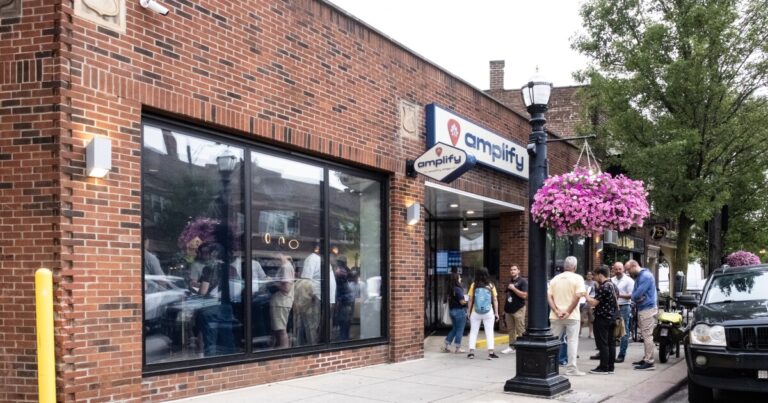In Ohio, nearly 80% of Lakewood residents voted “yes” to legalize recreational marijuana last November. City officials are addressing overwhelming voter support for Issue 2 with a new cannabis-centered law.
Issue 2 authorized the non-medical use of marijuana for individuals 21 years of age and older, including regulations regarding the cultivation, processing, sale, purchase, and possession of marijuana.
Lakewood and other northeastern Ohio municipalities are updating their ordinances to better align with the language set forth in the initiative. For example, the city is currently complying with state law that allows residents to possess 2.5 ounces of marijuana or grow up to six plants in their homes.
Generally, Ohio allows local governments to prohibit or restrict the sale of marijuana within their boundaries. As of mid-August, at least 78 municipalities or townships in the state had passed moratoriums banning non-medical marijuana businesses, according to the Ohio State University Moritz School of Law.
Meanwhile, Lakewood City Council President Sarah Kepple said the city is also seeing an overall shift toward more progressive cannabis policies. Along with an ordinance streamlining non-medical dispensary permits, the West Side suburb is rewriting zoning regulations for recreational stores in commercial districts. For example, two existing medical marijuana dispensaries are now also licensed to sell recreational marijuana.
Prospective owners must look for properties that provide a 500-foot buffer between storefronts and “sensitive areas” such as schools or churches. In another nod to Ohio's law, dispensaries themselves must be 300 feet apart to avoid the “crowding” of stores found in more permissive markets like Michigan.
“Our zoning law reflected what is still state law, but we revised it to remove the word ‘medical,’” Kepple said. “Given that Lakewood is 5.5 square miles and the state of Ohio does not allow dispensaries to be within 1,000 feet of each other, the reality is that there are probably only a few more dispensaries that could exist within state law. There will only be one within our local zoning.”
happy medium
With Issue 2 going into effect this year, Cleveland Heights recently added recreational marijuana dispensaries to the city's ordinance through legislation passed on June 3.
Like Lakewood, Cleveland Heights voters supported Issue 2 by a wide margin. Eric Zamft, director of planning and development for the Cleveland Inner Ring Region, said the city council quickly added new regulations that align with state guidelines. He points out that due to the limited real estate area, it is prohibited to have multiple pharmacies in the same building.
“There's no scenario where you're going to have a dozen pharmacies in Cleveland Heights,” Zamft said. “We are satisfied with our current business license and state location requirements. If there are bad actors, we can revoke the license at the city level.”
Amplify Medical Marijuana Dispensary in Coventry Village is currently open for recreational sales. Amplify, run by grower and processor Buckeye Relief, will likely add more entrepreneurs who are currently “working” on non-medical businesses in Cleveland Heights, said Brian Anderson, the city's deputy economic development director. spoke.
“We have been contacted by a number of established organizations and companies representing the pharmacy business,” Anderson said. “They're just ratifying our city planning laws while other cities are putting moratoriums on them.”
Anderson isn't disappointed that Ohio won't have stores lining the state line like Michigan does. He said the Buckeye State's current regulatory environment represents a perfect balance.
“It's a happy middle ground between not having any cannabis at all and doing whatever you want,” Anderson said. “We don’t have to go into zoning.”
the way to go
RISE Dispensary offers recreational cannabis at two locations in Lakewood, but city officials also envision space for homegrown cannabis businesses.
“Parts of the community have been grappling with the criminal consequences of marijuana being illegal, so we wanted to create an opportunity to give at least some opportunity to another potential entrepreneur,” Kepple said. spoke.
The City of Cleveland also changed its zoning code to accommodate recreational sales. Under the amendment proposed by Mayor Justin Bibb and approved by the City Council, new dispensaries would be limited to designated retail districts and stores would be located at least 500 feet from churches, public libraries, schools, parks and playgrounds. It turns out.
But Cleveland cannabis entrepreneurs now enjoy greater flexibility than in the past, when strict regulations limited medical marijuana dispensaries to limited retail areas, city council members say. Kelly McCormack said.
“Allowing marijuana sales in commercial and retail areas is the right way to make marijuana available to people,” McCormack said. “Compared to setting up a stand-alone store in a remote location in an industrial area, this option allows the retailer to be located near other retailers or in high-traffic areas.”
McCormack expects legal marijuana to be a huge benefit to Cleveland through increased tourism and job creation. For now, he said, he's satisfied that the product will be sold regulated by licensed professionals.
“It would be better for our city to store cannabis in a controlled environment than to sell it on the street,” McCormack said. “The tax implications could be very beneficial, and there are benefits to safe marijuana consumption for people who suffer from PTSD and anxiety. I am satisfied.”

